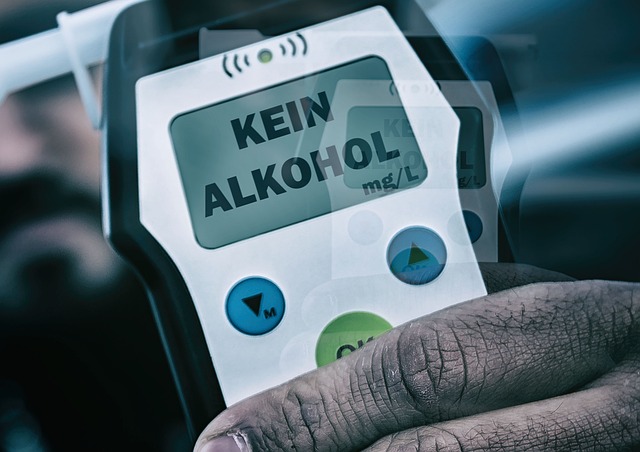Preventing early DUI among high-risk youth involves addressing impulsive decision-making, peer influence, and alcohol accessibility through tailored interventions. Identifying at-risk individuals, implementing effective management strategies, educating about consequences, promoting responsible behavior, and providing alternative activities are crucial. Community engagement, collaborative efforts, support networks, robust monitoring, risk assessment, individualized treatment plans, education, and public awareness campaigns reduce reoffending rates for high-risk reoffenders, ensuring safer communities.
“Youth prevention is a critical component in combating early DUI (Drunk Driving Under Influence) among high-risk individuals. This article delves into comprehensive strategies tailored towards addressing a pressing issue affecting young people. By understanding high-risk youth behavior, we can implement effective interventions and communication techniques to deter future incidents.
From community engagement to long-term solutions for managing high-risk DUI offenders, these measures aim to disrupt the cycle of reoffending. Embracing these strategies is vital in safeguarding our communities and ensuring a safer future for at-risk youth.”
- Understanding High-Risk Youth Behavior
- Early Intervention Strategies for DUI Prevention
- Effective Communication with At-Risk Teenagers
- Community Engagement in DUI Prevention Programs
- Monitoring and Support Systems for Reoffenders
- Long-Term Solutions for High-Risk DUI Management
Understanding High-Risk Youth Behavior

Understanding the behavior patterns of high-risk youth is a critical step in preventing early DUI (Drunk Driving Under Influence). This demographic, often characterized by impulsive decision-making and a higher tendency to engage in risky activities, requires tailored interventions. Factors such as peer influence, access to alcohol, and a lack of parental supervision can significantly increase the likelihood of underage drinking and subsequent DUI incidents.
Identifying at-risk individuals and implementing effective management strategies are key to breaking this cycle. By educating youth about the consequences of DUI, promoting responsible behavior, and providing alternative activities, communities can reduce the chances of reoffending. Targeted programs that address these issues can play a pivotal role in shaping positive choices among high-risk youth, ultimately lowering the potential for DUI management challenges later in life.
Early Intervention Strategies for DUI Prevention

Early intervention strategies play a pivotal role in preventing young individuals from engaging in DUI (Driving Under the Influence) behaviors. Identifying and targeting high-risk youth is crucial. Programs can be designed to educate them about the dangers of drinking and driving, offering alternative activities, and providing support systems. These initiatives aim to deter potential reoffenders by fostering responsible decision-making skills.
Effective management of high-risk individuals includes implementing evidence-based practices such as counseling, community service, and parental involvement. By addressing underlying issues and offering guidance, these strategies can reduce the likelihood of DUI incidents among youth. Targeted interventions not only protect young people but also contribute to a safer overall community by minimizing the impact of high-risk reoffenders on society.
Effective Communication with At-Risk Teenagers

Effective communication is a cornerstone in preventing early DUI (Driving Under the Influence) among teenagers, especially those at high risk of reoffending. Professionals and caregivers must establish open dialogues to understand the underlying factors contributing to such behaviors. By actively listening and showing empathy, it becomes possible to gain their trust and address issues like peer pressure, curiosity, or emotional struggles that might lead to substance abuse and risky driving decisions.
Engaging in honest conversations can equip at-risk teens with critical decision-making skills and promote healthier alternatives. Educating them about the severe consequences of DUI, both legal and personal, can be a powerful deterrent. Moreover, teaching them effective coping mechanisms and stress management strategies can help manage high-risk behaviors, ultimately reducing the likelihood of reoffending and fostering a safer environment for everyone on the road.
Community Engagement in DUI Prevention Programs

Community engagement plays a pivotal role in the success of DUI prevention programs, especially when targeting high-risk reoffenders. By actively involving local communities, organizations can create a network of support and accountability that extends beyond traditional legal systems. This approach leverages the power of collective responsibility, where neighbors, friends, and family members work together to deter at-risk individuals from driving under the influence.
Effective community engagement strategies include educational workshops, peer support groups, and targeted outreach programs that cater to specific high-risk demographics. By fostering open dialogue and providing accessible resources, these initiatives can help identify potential DUI offenders early on and offer alternative solutions for their safety and well-being. Furthermore, community involvement in management facilitates a more holistic understanding of underlying issues contributing to risky behaviors, enabling the development of tailored interventions that address these complex challenges.
Monitoring and Support Systems for Reoffenders

For high-risk reoffenders, implementing robust monitoring and support systems is essential for effective DUI management. This includes regular check-ins with probation officers, random breath tests, and participation in rehabilitation programs. Such measures serve as deterrents, encouraging individuals to make healthier choices and understand the consequences of their actions.
Additionally, these systems facilitate early intervention. If red flags are identified, such as a relapse or behavioral changes, immediate support can be offered. This might include counseling sessions, support groups, or alternative programs tailored to address specific needs, aiming to prevent future DUI offenses.
Long-Term Solutions for High-Risk DUI Management

Implementing effective strategies for managing high-risk DUI (drunk driving) offenders is a multifaceted approach that goes beyond immediate enforcement. Long-term solutions must address the root causes and underlying factors contributing to this dangerous behavior, aiming to reduce recidivism rates significantly. One key strategy involves comprehensive risk assessment and individualized treatment plans. By evaluating each offender’s personal circumstances, mental health, and substance abuse history, authorities can tailor interventions that are more likely to prevent future DUI incidents.
Education and public awareness campaigns play a pivotal role in the long-term management of high-risk reoffenders. Equipping young people with knowledge about the consequences of drunk driving and promoting responsible decision-making can foster a culture of accountability. Additionally, providing access to support groups and counseling services can help individuals cope with underlying issues and develop healthier coping mechanisms, thereby reducing their risk of reoffending.
Early intervention, effective communication, community engagement, and robust monitoring systems are key components in tackling youth DUI. By understanding high-risk behavior patterns and implementing strategic programs, we can significantly reduce reoffending rates among at-risk teenagers. Long-term solutions, such as comprehensive support systems and innovative prevention strategies, are essential to ensuring a safer future for our communities, with a particular focus on managing high-risk reoffenders.






